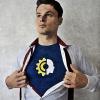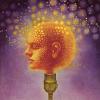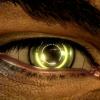Also it is interesting what you say about image streaming.It is known for many years and it has been discussed in many forums but i can't find any results.If it did work, wouldn't it grow more popular?

My 365 day intelligence improvement project feat. neurofeedback | n-back | cerebrolysin | semax | LLLT | tDCS
#151
Posted 10 January 2015 - 08:09 PM
#152
Posted 11 January 2015 - 08:02 PM
@VE
There you go with the fasting study, brother! http://www.ncbi.nlm....les/PMC2495396/- whole paper is available and I went through it. Although I didn't find anything interesting in regards to ketosis, it reveals quite interesting info on electrolyte metabolism and depletion.
Other than that, the photo is absolutely amazing. I'll put some special effort in my image streaming session tomorrow to experience at least a fraction of what you do ![]() Never been to brazil, must be great!
Never been to brazil, must be great!
@di36
Great questions. I've been looking to many places where people discuss image streaming and the experiences are extremely mixed, perhaps more so to the negative side.
I have a theory why it is so:
1. It can get very hard to force yourself to do image streaming every day (it's very important to do it consistently). At least that's my experience.
2. Even if you do, it's very hard to do it correctly. I can only imagine that most of the people describe predominantly what they see and not so much what they experience through other senses.
3. And even if done right, it's very complicated to measure the results.
So in general, it requires a lot of direct mental effort with practically zero immediate tangible benefits. The perfect storm for abandoning the practice. Hopefully will I make and document a breakthrough in image streaming to get more people into it but as I said, I feel like I didn't even scratch the surface ![]()
#153
Posted 12 January 2015 - 03:21 PM
The results I noticed from image streaming were very mixed because it was a challenge to do it on a daily basis. Once I managed to Image Stream for a whole week with persistent results. I found it much easier to formulate thoughts, conversations, solve problems. Meditation was a lot more interesting because I would get images non-stop. I also used a audio visual machine during some of my image streaming sessions and tried a little bit of photo-reading. I would like to do a study or a journal on image streaming and see what doing it everyday for at least 30 mins a day will bring me ! I am excited to do the log and I am willing to do it. Somethings that made it challenging to practice on a daily basis was that
1.it was hard to find a quite place where I could practice without worrying what people think of my image streaming,
2. Not too many people know about image streaming therefore I had little support
3. It made me "feel" a lot smarter than my friends which made me not want to socialize with them
4. It's a little hard to understand the right way to image stream because there are so many variations for instance there is the method where you record your image streaming sessions describing all your thoughts with each sense as best as you can and then listening to that recording again ( how many times should you listen to it and is it necessary to listen to the point of memorization or to see where you need to improve descriptions). What way are you laying down when you image stream ? Will image streaming at morning or night make a difference ??
Here is a link to the visual audio machine I use goo.gl/YXF3AE
Edited by mf6lol5, 12 January 2015 - 03:24 PM.
#154
Posted 13 January 2015 - 04:19 PM
While I haven't used the audio program that you're using for meditation, i tried many others and ended up only using the Holosync Program for the simple reason that it had by far the strongest noticable effect. Actually it assisted me in most of my meditation training, even sometimes in retreats (I would cycle there). Also my Zen practice got deepened alot by it (where any gear is stricly prohibited). I'm not sure if it does any of the wonders the makers proclaim, but it has an effect far beyond placebo and it helped me sit longer and feel better afterwards. Ken Wilber (who might be my favorite author) actually recommends cycling audio entrainment in the sense of "knowing where to go" and "learning how to get there yourself", i.e. making yourself independent of the gear and mastering the skill further. And this is a guy who practiced Zazen every day since his twenties without any gear or drug support. They also have a program for concentration that i use (Alpha something) along with some other brand. While I don't know if they have an effect more than placebo, they're my favorite way to shut myself off of noise with in ears and i feel a slight effect on focus. I recently bought this at some discount: http://www.iawaketec...m/neurocharger3- i chose the brand because their meditation program came in number two in my trials. Far fairer price than Holosync anyway. I just remembered i wanted to tell you of this, when Asprey put up a blog post chatting with the maker of Holosync (seems to be a NFB guy too.) Didn't watch it, but can be found here: https://www.bulletpr...h-holosync-186/
And just writing "without any drug support" i remembered this amazing article: http://buddhism.lib....-ADM/stolar.htm
I guess (low dose?) psychedelics can take Image Streaming to a whole new level too. I know that after drinking Ayahuasca my meditations became far more vivid and full of imagery in the long run on their own. I wasn't even looking for that (Zen doesn't care about finite objects), but it came along with a good feeling, so I don't mind. I wouldn't randomly recommending people taking Psychedelics, especially in high doses, but I feel like the article is something any serious biohacking meditator should look into. Low dose psychedelics + TAG Sync might be an really interesting combination too. Also of course any nootropic/supplement that enhances alpha and other brainwaves associated with deep meditative states.
Edited by VastEmptiness, 13 January 2015 - 04:20 PM.
#155
Posted 14 January 2015 - 01:04 PM
http://www.wakingtim...gland-function/
while you already use some of those - should help with image streaming and/or visualization as well ![]()
#156
Posted 14 January 2015 - 03:11 PM
#157
Posted 15 January 2015 - 01:51 PM
Canditatus, when and how are you going to measure possible results of your overall training?
#158
Posted 15 January 2015 - 05:56 PM
Canditatus, when and how are you going to measure possible results of your overall training?
I am interested in this subject too - I find that with elevate, peak and luminosity you can basically learn to become better at the games, this means its not really measuring your cognitive capabilities. I am not really sure if standard brain tests measure intelligence properly either.
However if cand is increasing his HEG scores thats definitely a measurable improvement.
#159
Posted 15 January 2015 - 08:10 PM
Sorry for cutting in the discussion. I have been wondering whether there are some protocols for training the general fluid in terms of this theory of intelligence which emphasizes role of frontoparietal integration through the amount of gray matter - thus - prorocols (EEG, HEG, qEEG, Current Stimulations) for the approipriate matter(s) although these gray/white matters are claimed to be highly heritable (?).
Candidatus, I guess you still maintain that TLC7, HEG and TAG are the best investment in order to achieve state of peak performance?
#160
Posted 17 January 2015 - 01:57 AM
Hey all! I want to thank everyone for the great contributions thus far - there are a lot of studies, books, devices, etc. for me to look into. Great thread Candidatus. Anyhow, though I haven't went through every single post (I'd say all of them on 4/6 pages thus far, though not in order), but I saw mention of sleep, sleep duration, and so forth come up quite a bit.
I have to say, because of my current state of being due to mold issues and potential Lyme, "HPPD", etc. I need 8+ (many times 10+) hours of sleep to feel 'normal' (and my 'normal' is not normal by any means, lol). Yet, in healthy individuals, I don't think this is the case, nor do I think it is even optimal. In fact, a couple of the worlds most renown sleep researchers have started coming out about this, and even train people to sleep very little at all (a couple hours at most) and perform at a very high level, all without any decline in health. Here is a very long, very scientific book I recently found, but have yet to read in depth outside of skimming and collecting some studies to read in the future:
Why We Nap: Evolution, Chronobiology, and Functions of Polyphasic and Ultrashort Sleep, by Claudio Stampi, MD, PhD: http://sleepwarrior...._Why_We_Nap.pdfThere are many studies in this book, along with the researchers' clinical experience, personal anecdotes, etc. They even mention some things you won't hear Jack Kruse or anyone in the "paleosphere" talking about, such as nocturnal paleo cultures, other cultures whom enjoyed feasting at night and staying up late, etc.
Here is a study done on Tony Wright and one of his friends/colleagues in which days of sleep deprivation improved their cognition, and they claim to frequently deprive themselves of sleep much longer, but the people running the lab feared for their lives and wouldn't allow them to go further: http://leftinthedark...STER TRIAL.pdf
Oh, by the way, for anyone interested, there are some very evidenced backed rebuttals to human brain encephalization (and the diet, lifestyle factors, environment, etc. that caused it) that Cunnane and Crawford put out (which is the foundation for Jack Kruse's "epi-paleo" diet). Check out the work of Katharine Milton, PhD, and Nathaniel J. Dominy, PhD, along with the researchers/colleagues of both of them. Anyhow, I suspect that Nathaniel's work is relevant to sleep, too, because he has shown that there are short wavelength light sensitive opsins, in addition to ones very sensitive to 'dim light' (or, the amount of light that one would be exposed to in the dark when only the moon is out, or there is a fire lit, etc). He has hypothesized that this played a large role in gathering food (largely from plant sources, probably rich in prebiotics (perhaps tiger nuts!?)) and eating at night and the like. This means either circadian rhythms and sleep times would be vastly different than most currently believe, or, there were many times when pre-humans and early humans went without sleep to gather food, perhaps have sex, and who knows, maybe gather some psilocybin mushrooms (jk ![]() ). Far different narrative than the common ones in paleo where we hunted and gathered in the day, feasted after (or before) fasting, and went to bed with the sun.
). Far different narrative than the common ones in paleo where we hunted and gathered in the day, feasted after (or before) fasting, and went to bed with the sun.
There are also dozens of studies showing that periodic, 'strategic' (in my words) sleep deprivation is a very strong treatment for endogenous depression, and in animal models, largely protects against endotoxin and various bacterial infections that cause cytokine storms that can thus cause systemic inflammation and alter brain functioning and emotions and behavior. Things like (chronic ingestion of) caffeine, ATP, creatine and phosphocreatine, potentially ketones via inducing adenosine build up and shutting of neuronal inflammation, altering the dopamine:serotonin balance, etc. and many other things, can almost entirely 'protect' one from the 'negative effects' of sleep deprivation. There are a lot of studies on libgen.org or pubmed open access on this, though I can post some later after I do some school work.
As Tony Wright and a couple others have written about and given presentations on, periodic sleep deprivation seems to largely enhance not only cognition, but meditative experiences, and there are in fact some meditative practices where (small amounts of) sleep deprivation is added to the mix. Prolonged fasting combined with sleep deprivation, altitude, and mantras/drumming/humming/etc. have been used for a long time to induce altered states of consciousness. I've also seen a good amount of comments from people using both RS2+RS3 resistant starch, and all other pre/probiotic foods/supplements, that they don't need more than 6 hours of sleep maximum, now, after a few months of chronic use. I have a feeling that histone deacetylation has something to do with this, but I don't know yet. Dr. Dean Bonlie, DDS, and Jack Kruse have claimed that the magnetico sleep pad often reduces physicians need for sleep to about 6 hours, and they can more easily pull off all-nighters or nights with only 4(ish) hours of sleep. So, maybe the brain just needs adequate nourishment, circadian zeitgebers, some training, and then things change?
Again, I'm not stating that we should all go and do this, though! There are periods of adaptation; there are strategic uses; metabolic issues to solve first; circadian zeitgebers; and sooo much more. Just trying to play devils advocate and open up some discussion ![]()
#161
Posted 17 January 2015 - 06:48 PM
Edited by Candidatus, 17 January 2015 - 07:00 PM.
#162
Posted 17 January 2015 - 09:54 PM
Candidatus,
I was thinking about increasing blood flow in frontal lobes without HEG - only using self-suggestion to bring that increase about. I think that it may be possible on the baisis of Schulz's method of inventing autogenic training (he used descriptions made by people under hypnosis). Are there any subjective feeling, markers when you are training HEG, which can be used to formulate some self-suggestions (concerning sensulal vocabulary as feeling warm/cold/heaviness in body/forehead)?
#163
Posted 19 January 2015 - 05:38 PM
@Bogumil
Interesting question. While training with HEG, I'm trying to put myself into a state of very intense focus. I would say that if you would do something like focusing on a coin in front of you in an attempt to move it would yield the best effects on blood-flow increase. As for the feelings, it's like a heavy feeling in the prefrontal cortex, perhaps coupled with a feeling of warmth in those areas.
Some time before, I've made an experiment where I've measured my HEG ratios while training with nir-HEG and while playing dual-9-back. Both lead to the same blood-flow increase, only difference was that with DNB it was a bit slower. But I definitely think you can get the benefits of HEG training without using the device, at least to some degree.
Hope this helps.
Edited by Candidatus, 19 January 2015 - 05:39 PM.
#164
Posted 22 January 2015 - 04:15 PM
"Bulletproof" coffee experiment
Despite not being a big fan of caffeine and coffee, I decided that before starting Cerebrolysin cycle (already on my way from nootropicEU, should arrive next week), I'd try to find out how do I react to coffee after several months of complete abstinence. I was mainly interested in it's effects on sleep as I thought it would substantially decrease sleep quality.
What I found?
That it actually improved my sleep quality, but it had a negative effect on sleep duration and sleep onset. The effects were quite substantial.
Other than that, it gave me noticeable energy and focus boost. My DNB scores peaked at 9.70s today after a second coffee.
Those effects are quite surprising. I've been drinking the ketogenic drink for around 6 weeks, which is actually a variation where coffee is replaced with cocoa. The effects have been subtle. On the other hand, I don't notice the same effects from a normal plain coffee so there must really be a synergy between coffee and these fats.
I've not done much research into caffeine but I'm aware that there are very mixed feelings about it. Some people praise it and some say that a boost from coffee is short-lived and it's mostly working as an actual caffeine withdrawal cure. This non-scientific video is interesting:
I've written an article about the whole experience available here, where I've posted the graphs from Zeo and Brainworkshop. Anyway, I'm going to continue "supplementing" with BP coffee for several days to see if the effects last. I might decide to cycle it on and off in the future.
#165
Posted 22 January 2015 - 08:16 PM
my experience with bulletproof coffee (+ theanine) in ketosis has been amazing. and that is even on a heavy caffeine addiction. can only image it's effects without any tolerance.
fun fact: talking to braintrainer.com about how to get a q-wiz cheaply to brazil, i found out that the main guy, pete, is residing in brazil and - luckily happens to live 100km from where i'm traveling right now. made an appointment for tomorrow and will take a scooter down to his place, to get a full brain assessment, training plan and my first NFB session ![]() more than happy about this somewhat weird coincidence. will let you know about the experience; you seem to be really happy with the full brain plan.
more than happy about this somewhat weird coincidence. will let you know about the experience; you seem to be really happy with the full brain plan.
#166
Posted 24 January 2015 - 02:00 PM
Coffee after after taking a break can be really awesome. While this initial high fades the motivating effect stays. Also on the plus side: it will not keep you up at night after you build up a tolerance.
I wonder how many highly productive people abstain from caffeine.
#167
Posted 30 January 2015 - 02:57 PM
Pretty amazing AMA on reddit about the effects of concentration meditation:
LongeCity user? He knows the site.
#168
Posted 12 February 2015 - 01:47 PM
how is this going?haven't heard anything for a while.
#169
Posted 13 February 2015 - 12:07 AM
Can somebody tell me, if I can using q-wiz or neurobit optima 2 create my own protocol based on the recordings of my desired mental states (reached after many brain-boosting activities, lectures, physical exercise, playing the piano, reading a nice book)?
#170
Posted 16 February 2015 - 07:22 PM
Hey guys, whats up?
I haven't been on the forum for a while although I've been continuing with my brain training routine all the time (except for a week long break 3 weeks ago). I have several interesting observations to share with you.
1. TAG-Sync: for a while, I thought it's way overhyped, especially the 4-channel since I didn't get much results from it but it seems like I've just been doing it the wrong way all the time. I've been trying to train synchrony between all the frequency couples which lead to doing only 5-10 minutes for one pair. Wrong approach. Now that I use it for 45+ minutes only for alpha-theta, I can get into incredibly deep meditative states during the session. It feels just wonderful and I love it. And normal meditation is enhanced as well. I'm about to do theta-gamma TAG training with a task - dual-n-back - because apparently according to this paper, it correlates with intelligence http://www.sciencedi...160289614001032 - credit goes to @Crowstream
2. BP Coffee: I've been drinking it for 2 weeks and had to stop. Developed a caffeine tolerance, experienced mild withdrawals and it messed up with my sleep (not quality but time to fall asleep and inability to take naps). I may use it on ad hoc basis in the future, but it's definitely not a daily drink for me. I just don't see the benefits outweighting the negatives.
3. LLLT: been using a red LED therapy light along with following stack: CoQ10, PQQ, Theanine, Uridine, DHA, ALCAR, R-ALA, glutathione + BP Coffee (sans coffee with cocoa powder) for last few 2 weeks and it's great. Gives a very clean "buzz" to the brain which lasts for several hours. And it seems to build up slowly.
So far, I feel like I went from Candidatus 1.0 to Candidatus 1.6 (at least), lol ![]() . Most of it during the last 2 weeks. However, I believe that things are going to get much more interesting because I'm finally starting a Cerebrolysin cycle.
. Most of it during the last 2 weeks. However, I believe that things are going to get much more interesting because I'm finally starting a Cerebrolysin cycle.

Cycle: 6 days on 1 day off, 8 weeks, 5ml/day
Approach: Using 10ml CBL vials and splitting them in half - injecting one while storing the other in an antibacterial laboratory vial locked in air/liquid proof Tupperware disinfected with isopropyl alcohol.
Goals: follow brain training routine as strictly as possible and try to improve, learn 3000 mandarin words and one complete european language (probably Italian). Or at least give it my best shot.
Tracking tools: weekly QEEG assessment, dual-n-back (which has been stagnating for 3 months/350 sessions on 9-back), reaction time and short term memory on http://www.humanbenchmark.com/, subjecitve tracking of productivity, mood and mental energy 2x/day
Source: nootropic.eu (no affiliation) - got 4+1 free so it was basically the same price as from gerovitalshop.eu, which is the cheapest source.
I'll try to update every 3 days or more frequently.
Day #1
That's always called a placebo day. I took he first CBL shot first thing in the morning and then I followed with my morning routine.
I literally "felt"it during the first several hours, but I'm pretty sure it was just placebo. Cerebrolysin doesn't "work" this fast. Nevertheless, I managed to do something awesome - I've broken the 9-back plateau with a style!

So let's see if I can move forward from there. I've also broken my PB in the reaction time - 205ms vs. 223ms as previous PB on http://www.humanbenchmark.com/
Other than that, today was the most productive day in a long time. I didn't procrastinate at all. I was very driven. I also wrote the last months brain training report. Again, probably placebo.
I'm about to do TAG and meditation and then I go to bed. So let's see if there is any difference in sleep quality.
@Bogumil
You can, theoretically. It would go like this:
1. Make QEEG of your brain (using ABCD assessment from brain trainer or something similar) while doing your desired task. Then do the same QEEG while doing nothing.
2. Spot patterns e.g. higher theta-gamma coherence in F3-F4... determine the difference from the base.
3. Create BioExplorer design which targets those patterns you spotted and calculated.
4. Up-train those patterns with the design.
This is very simplistic and I can not imagine doing it myself, but it could probably work if you have enough skill, knowledge and experience.
Edited by Candidatus, 16 February 2015 - 08:02 PM.
#171
Posted 17 February 2015 - 12:12 PM
Edited by Candidatus, 17 February 2015 - 12:18 PM.
#172
Posted 18 February 2015 - 10:33 AM
CBL day #2
As I mentioned in the post above, I've had some issues with my sleep the first night. It took me 38min to fall asleep (average without caffeine is around 20min) and I woke up at 5am (alarm clock goes off at 6am) and couldn't fall asleep so I just got up.
However, I felt very refreshed so it was no issue. Took another dose of CBL, then I've done focus training with nir-HEG, where it took me record time to reach the max (112 - for some reason, I can never go above this level, when I reach 112, the score falls back to baseline).
Went running and then I've done dual-n-back and meditation. Inspired by the extremely interesting AMA posted above, I've done 60min meditation session. Then I took my "noots" - Happy's stack + TULIP + Ketodrink (as mentioned above). I skipped morning TLC neurofeedback session.
Several observations:
1. My DNB score at 10-back peaked at 66%. I was above 50% threshold all the time. I literally felt a sense of warmth in my brain during 2-3 games from the intense concentration. It was like a switch turns on in the brain.
2. I experienced my best meditation ever. Absolutely amazing.
3. After taking the morning stack, I felt amazingly sharp. Words can't describe the feeling.
4. My reaction time improved - best score 170 and average of 5 attempts 224.
I was very motivated and productive up until 3pm where I "hit a wall" and my mental energy went down. I speculate it's because I'm not in ketosis but I'm also not eating many carbs during the day. Or because I didn't sleep that much.
Nevertheless, went to the gym, got back and ate a high-carb meal. Experienced mild brain-fog right after that. TAG-session was not impressive. Meditation afterwards was good. Went to bed early and fell asleep within 8 minutes. Slept for 8 hours straight and woke up naturally without alarm clock.
2nd day sleep: 6h 27min, REM 2h 2min, Deep 2h 6min
3rd day sleep: 8h 06min, REM 2h 57min, Deep 1h 59min
--- according to Zeo Mobile sleep tracker
Average sleep time and quality in January was 1h 48min Deep and 2h 43min REM. Total sleep time 8h. Just for some perspective.
I've done my morning routine already today, DNB best 65% 10-back, morning running workout was much more intense (probably because of the carbs), didn't reach the max during 10min focus training, meditation good, TLC neurofeedback gamma up-training awesome. I don't feel the same kind of motivation as in the previous 2 days (so it was probably placebo). I feel great otherwise though.
Hope this reporting format is ok ![]()
Edited by Candidatus, 18 February 2015 - 10:42 AM.
#173
Posted 18 February 2015 - 01:29 PM
Good to see you're back and still improving.
I just had another quick question if it's not too much trouble: do you think BrainHQ is better than Lumosity/is itworth doing given the amount of research it has supporting it? I saw the post on your blog comparing it to Lumosity, and was wondering if you thought it genuinely could improve cognitive function (?) It has a lot of studies behind it, but most of them seem to pertain to the elderly or people suffering from cognitive decline, which made me question whether it would be worth doing for someone who is relatively young and healthy.
#174
Posted 18 February 2015 - 01:59 PM
Hey Stuart,
I think that both of those can have some positive effect but I really can not compare because I've only used Lumosity extensively. BrainHQ - not so much (still... I think they offer more or less the same). But should you invest your time and money in it? That's a different question.
As you can see, the games are build in such a way that they train attention, short term memory, reaction time and flexibility of thought. All of those areas would see some transfer effect into everyday life. Question is if it's worth it and problem is that not all the games are well-crafted. In some, you just train a non-transferable skill (at least I felt like this on some Lumosity games).
Personally, I would much rather dedicate 30min potentially spent on Lumosity/BrainHQ to meditation/dual-n-back/language learning. I mention dual-n-back because recently, I started to have very interesting experiences from it. These long sessions requiring ultra attention really make an effect I can physiologically feel (the warmth sensation described above) followed by heightened sense of focus. It's basically like taking a stimulant. And on top of that it's free.
But if you can dedicate some time to those games without making a sacrifice elsewhere, give it a try and report back after some consistent training. Would certainly be interesting so see if you feel any effects ![]()
#175
Posted 19 February 2015 - 11:37 PM
Okay, thankyou for the response ![]()
#176
Posted 20 February 2015 - 12:44 AM
@Bogumil
You can, theoretically. It would go like this:
1. Make QEEG of your brain (using ABCD assessment from brain trainer or something similar) while doing your desired task. Then do the same QEEG while doing nothing.
2. Spot patterns e.g. higher theta-gamma coherence in F3-F4... determine the difference from the base.
3. Create BioExplorer design which targets those patterns you spotted and calculated.
4. Up-train those patterns with the design.
This is very simplistic and I can not imagine doing it myself, but it could probably work if you have enough skill, knowledge and experience.
Ha, I'm loving this already. Actually resembles fully the idea of modelling in early NLP, where they basically tried to do that with people performing exceptionally and what came out is the psycho-toolbox that NLP is today. Finding out how to access a desired mental state is the main goal of all coaching derived from the works of Milton H. Erickson (which is almost all schools really) So modelling your own desired states and re-training them constantly resembles the same idea from the outside combined with the idea of repeated exercise/conditioning. Reaching a desired state during the coaching/training is fairly easy if the facilitator knows what he's doing. However the transition to every day life is usually the trickier part. This is why i find applications of NFB during task very interesting. Like what you said about TAG Sync + dual-n-back or maybe HEG + dnb, HEG + HRV + reading, etc. I'm thinking of something like a constant audio feedback that will keep you in the desired state for the time of the task (low stress, high focus, whatever). While this is all just ideas at this point, I feel like it would be a great addition to the regular training of generally helpful brain patterns and will be especially interesting if one has already reached a state of strong general mental health.
#177
Posted 20 February 2015 - 03:47 PM
Candidatus,
Thanks for the reply. Does Dailey Tag Sync include also theta-gamma?
Great research paper that you've found.
#178
Posted 24 February 2015 - 04:42 PM
Awesome initiative and awesome thread! Any updates? Really curious about how the cerebrolysin and LLLT experiment is going.
#179
Posted 27 February 2015 - 03:37 PM
hope you didn't overdose or something ![]() would be interested in an update about celebrolysin as well.
would be interested in an update about celebrolysin as well.
also: you chose injections over the nasal spray, right? why is that?
Candidatus,
Thanks for the reply. Does Dailey Tag Sync include also theta-gamma?
Great research paper that you've found.
the frequencies are interchangeable, so yes. most of the guys train alpha-theta and cycles with theta-gamma, afaik.
Candidatus, using Crowstreams 4 channel design, seems to be training synchrony between delta, theta, alpha and what seems to be gamma at the same time, if i read the design correctly (see screenshot).
however i'm only starting to understand what TAGsync is doing exactly, so maybe one of them can elaborate.
edit: found this helpful - http://www.brainwork...-are-brainwaves
Attached Files
Edited by VastEmptiness, 27 February 2015 - 03:51 PM.
#180
Posted 27 February 2015 - 03:48 PM
the frequencies are interchangeable, so yes. most of the guys train alpha-theta and cycles with theta-gamma, afaik.
Candidatus, using Crowstreams 4 channel design, seems to be training synchrony between delta, theta, alpha and what seems to be gamma at the same time, if i read the design correctly (see screenshot).
however i'm only starting to understand what TAGsync is doing exactly, so maybe one of them can elaborate.
You can use that design to train delta, theta, alpha or gamma. What I usually do is to train 2 of them at once, most often theta-alpha and theta-gamma or alpha-gamma. I created the design to easily switch between training different frequencies, what I will do is to set the thresholds to 0 on the frequencies I am not using, and mute any sounds they might be making, that way you dont get any feedback on them (except if you are looking at the bars).
You could also just change the frequency band in the signal diagram but I find it is easier to just change it on the bars, but it doesnt really matter.
What I have found most effective is to use one setting, like theta-alpha for most of the session and then finish off with theta-gamma or alpha-gamma. It takes some time to learn and get into the mental state that is optimal for each configuration so switching between different setups too much makes that a bit harder. So I prefer to try to go deeper with one setting and really master that. I think you can get a lot out of just doing theta-alpha training so not much need to try other stuff, when I made that design I was experimenting with all the parameters I could think off but in the end I settled to using a setup very close to the original (except it is 4-channel and uses continuous feedback).
Hope that makes sense ![]() .
.
Also tagged with one or more of these keywords: neurofeedback, cerebrolysin, n-back
Science & Health →
Supplements →
Risperidone + IDRA-21 SynergyStarted by VenomSnake , 20 Apr 2023 |
|

|
||
Science & Health →
Brain Health →
Cerebrolysin , retrospective.Started by Schulte257 , 08 Dec 2021 |
|

|
||
Science & Health →
Brain Health →
Nootropic Stacks →
very low dose Cerebrolysin (would it be effective?)Started by VenomSnake , 22 Nov 2020 |
|

|
||
Round Table Discussion →
Business →
Retailer/Product Discussion →
Microdosing Cerebrolysin (or Cortexin)Started by VenomSnake , 22 Nov 2020 |
|

|
||
Science & Health →
Brain Health →
Mental Health →
Cerebrolysin for Confidence, Self-EsteemStarted by VenomSnake , 27 Sep 2020 |
|

|
86 user(s) are reading this topic
0 members, 86 guests, 0 anonymous users
























































